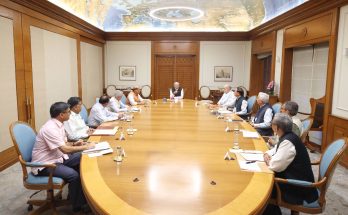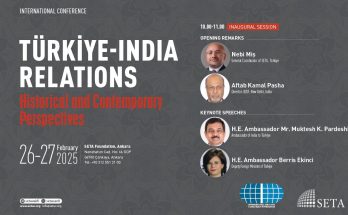
India has in principle agreed to sign LSA, one of the three foundational agreements that the US has been asking India to sign. The agreement provides access to each other’s military facilities for berthing and refueling, and better logistic support on a reimbursable basis. LEMOA, specially written for India, essentially formalises an existing arrangement to strengthen military–to–military cooperation.
The debate about India signing the LEMOA, CISMOA and BECA for geo–spatial cooperation has gone on for more than a decade. The Indian government under the UPA government resisted signing these agreements because it feared domestic political criticism about losing “strategic autonomy”.
Critics argue that these are agreements signed typically by US allies and, therefore, if New Delhi were to sign them, it could be construed as India turning into one. However, in reality, these agreements have been signed by around 100 countries, not all of whom are US allies.
Another, even more absurd criticism is that signing these agreements will make New Delhi complicit in American wars and policies, especially in West Asia and East Asia. Proponents of such views do not say how, nor why the other 100 countries that have signed such agreements are not similarly considered. France has signed a similar agreement but that has not drawn it into these conflicts.
The LEMOA does strengthen US–India military–to–military relationship. But this strengthening has been happening for more than a decade. We conduct more military exercises with the US than with anyone else, and our military is increasingly looking to equip itself with American–built military equipment (even though we will remain overwhelmingly dependent on Russian equipment for the foreseeable future).
This is happening as a conscious strategic choice that the last three Indian governments have made, partly because China’s increasing military strength can no longer be ignored and partly because China’s behaviour over the last decade has become increasingly assertive. India needs to beef up its military capabilities and it’s It is only natural that India will look to the US because both countries share a common perception about China’s rise.
The absence of these umbrella agreements have hindered India–US military–to–military cooperation: India has been denied certain equipment with CISMOA–category communication systems, and equipment that India has acquired, such as the P–8I anti–submarine aircraft, have been stripped of some of its most useful equipment because India has not signed of the agreements.
Signing these agreements will not make the US our ally, nor will it solve all our differences with Washington. But, India does stand to gain by signing the LEMOA and other agreements. For example, India, which has one aircraft carrier and lacks the capacity for far–sea operations, could potentially gain access to US military bases in the Indian Ocean, such as Diego Garcia and Djibouti. This will enhance India’s reach in a big way and provide the much-needed logistics support to carry out a variety of missions in the Indian Ocean.
Author Profile
- India Writes Network (www.indiawrites.org) is an emerging think tank and a media-publishing company focused on international affairs & the India Story. Centre for Global India Insights is the research arm of India Writes Network. To subscribe to India and the World, write to editor@indiawrites.org. A venture of TGII Media Private Limited, a leading media, publishing and consultancy company, IWN has carved a niche for balanced and exhaustive reporting and analysis of international affairs. Eminent personalities, politicians, diplomats, authors, strategy gurus and news-makers have contributed to India Writes Network, as also “India and the World,” a magazine focused on global affairs.
Latest entries
 India and the WorldJune 26, 2025Operation Sindoor: India Sheds Restraint, Rediscovers Utility of Force
India and the WorldJune 26, 2025Operation Sindoor: India Sheds Restraint, Rediscovers Utility of Force India and the WorldJune 23, 2025BRICS summit in Rio to focus on Global South, local currency trade
India and the WorldJune 23, 2025BRICS summit in Rio to focus on Global South, local currency trade Africa InsightsJune 11, 2025New Opportunities in India-Japan Cooperation in Africa
Africa InsightsJune 11, 2025New Opportunities in India-Japan Cooperation in Africa India and the WorldMay 23, 2025Post-Operation Sindoor, India reminds Turkey, China of concerns and sensitivities
India and the WorldMay 23, 2025Post-Operation Sindoor, India reminds Turkey, China of concerns and sensitivities







